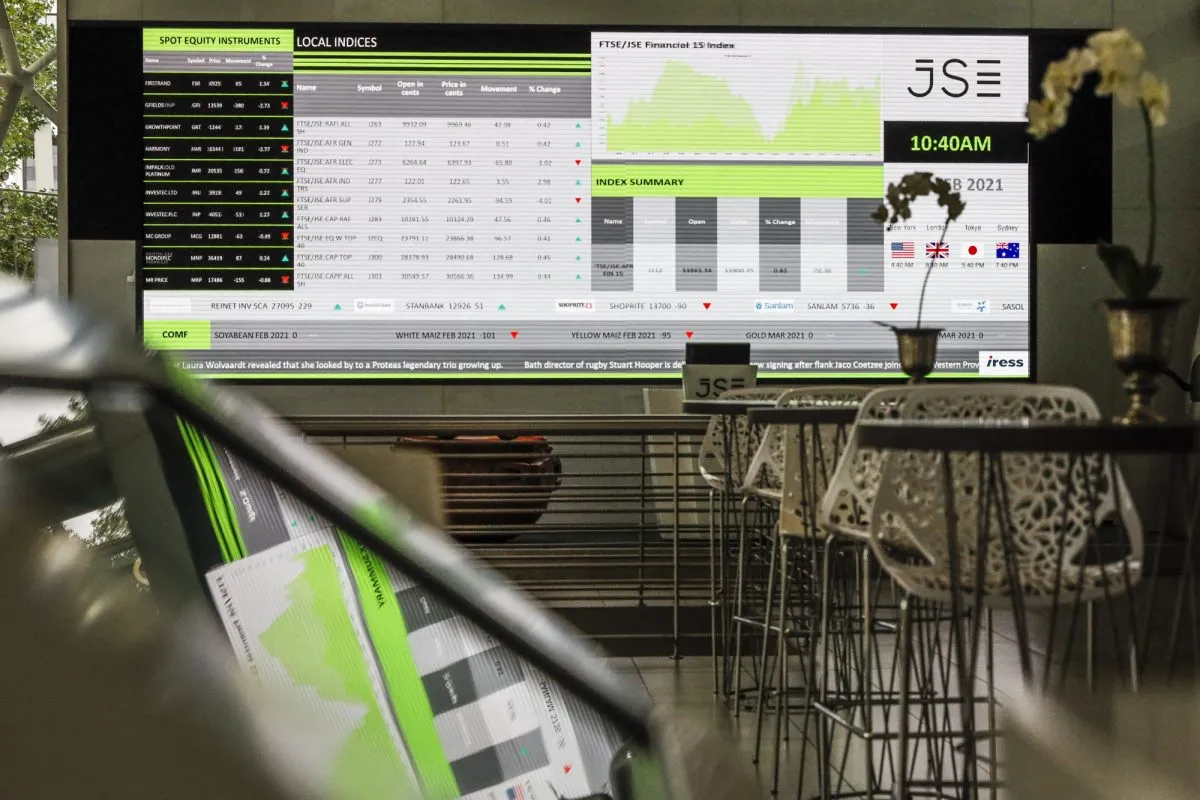Investec, the Anglo-South African banking group, is staking its claim on the future of trading with ZebrA-X, an electronic platform targeting institutional investors. Launched in February, the platform aims to help fund managers and large-scale traders execute orders more efficiently, accessing deeper liquidity while minimising price fluctuations caused by big trades.
For regulators, however, AI trading tools raise questions about oversight in an industry increasingly shaped by automation.
ZebrA-X centralises trading, streamlining how institutional clients access liquidity, select execution algorithms, and engage with Investec’s trading desk. “ZebrA-X is designed to create a central hub for trading, allowing us to concentrate venue choice, algorithm selection, and a high level of client service all in one place,” says Dominic Lowres, Investec’s head of electronic trading and execution strategy.
The result, Investec says, is a more seamless approach to execution, ensuring trades are carried out with minimal disruption to market pricing.
One of the biggest claimed advantages is an ability to execute large trades without setting off market signals – sudden price swings triggered when big orders become visible to competitors. In traditional trading, a sizeable order hitting the market can prompt rival traders to react, pushing prices up or down before the trade is fully executed. ZebrA-X is designed to counteract this. By managing order flow and using algorithms, Investec says it can strategically place trades to avoid setting off market signals.
“Electronic trading is evolving rapidly in Africa, driven by technological advancements and a growing demand for efficiency,” Andries Potgieter, head of electronic execution services at Investec, tells African Business.
Asset managers are increasingly turning to algorithmic tools to optimise execution and locate liquidity. “As the roles of high-touch and low-touch trading converge, I believe the leaders of the future will be those who blend the best of both worlds: the speed, scale, and cost efficiency of electronic trading with the personal service of a higher-touch trading model,” Lowres says.
In major markets like the United States, algorithmic trading accounts for approximately 60% to 73% of equity trading volume, says Allied Market Research. Once dominated by the roar of traders shouting orders across crowded floors, today’s markets are controlled by silent algorithms executing orders at speeds beyond human comprehension. A handful of firms, backed by legions of PhDs and engineers, now develop increasingly sophisticated trading models, refining complex strategies that move billions of dollars in milliseconds.
For today’s traders, the greatest risk isn’t just the market itself but also human emotions – greed, fear, boredom, and hesitation – that can sabotage decision-making. Automated trading systems are meant to mitigate these pitfalls by identifying trades based on predefined rules, eliminating emotional biases. When specific conditions are met, these systems respond, helping remove the hesitation that can plague human traders.
AI-powered trading systems have transformed forex and equities markets, processing vast datasets in real time to detect patterns and inefficiencies long before a human trader could react. Sentiment analysis is also emerging as a critical tool, with AI models scraping financial news, social media, and trading forums to gauge market mood.
Retail investors targeted
While institutional traders refine their execution strategies, AI-driven trading is also reshaping the retail market, offering individual traders tools once reserved for hedge funds and asset managers.
CFI South Africa, a subsidiary of the global brokerage CFI Financial Group, has introduced the Kaiana AI trading assistant, which the firm says is designed to sharpen decision-making and streamline operations. Kaiana delivers real-time market analysis, assists with tasks like withdrawals and leverage adjustments, and provides traders with educational insights.
“CFI wants to be the go-to brand for trading and investing in Africa. Our goal is to empower traders and investors across the continent with the most advanced, personalised, and accessible solutions,” says Zihaad Israfil, CEO of CFI South Africa.
The company has embedded AI across its suite of trading tools, offering personalised insights and automated execution.
“One of the key moments was the development of an algorithm that could learn from market data and adapt over time, rather than relying strictly on predefined rules,” Israfil says.
AI now plays a central role in high-frequency trading (HFT) and quantitative strategies, enabling traders to analyse patterns and predict market movements more efficiently than traditional methods.
But Africa’s trading environment presents unique challenges. Market liquidity remains inconsistent, and AI models – while powerful – must adapt to less stable conditions compared to developed financial ecosystems.
The risks of AI trading
Furthermore, regulatory uncertainty looms. “Financial markets here are still subject to evolving regulatory frameworks, which can create uncertainty for traders,” Israfil says.
The IMF has warned that AI-driven trading models can exhibit herd-like behaviour, accelerating sell-offs and amplifying price swings during economic disruptions.
The South African Financial Sector Conduct Authority (FSCA) has been stepping up oversight, issuing regular updates to try to ensure that AI-driven trading tools operate with transparency. Traders are now receiving compliance notices designed to keep them ahead of evolving regulations, Israfil says.
At the national level, South Africa is moving toward broader AI regulation. The Department of Communications and Digital Technologies has published a draft AI policy framework that aims to lay the foundation for AI governance across industries, including finance.
A worldwide trend
As regulators scramble to keep pace with AI-driven trading, bots are drawing in a new wave of crypto traders – everyday investors hooked on YouTube tutorials and social media for market insights and strategy updates.
AI-powered trading bots have proliferated globally, particularly in cryptocurrency markets, with platforms such as 3Commas, Cryptohopper, and Trade Ideas among the most widely used. The AI crypto trading bot market was valued at $40.8bn in 2024 and is projected to reach $985.2bn by 2034, growing at a compound annual rate of 37.2%, according to Research and Markets.
Automation is also reshaping portfolio management. AI systems scan thousands of securities across multiple asset classes, pinpointing diversification strategies in seconds. By weighing historical performance, volatility indicators, and sectoral correlations, AI can construct resilient portfolios designed to weather market turbulence, says Mj Givens Kgasi, financial analyst at Octa.
“If a US inflation report is set to be released at 3:30 pm South African time, a retail trader placing an order at 3:29 pm might find their trade rejected due to high market volatility. AI, however, can execute that trade instantly, increasing liquidity and reducing transaction costs,” says Kgasi.
“AI also eliminates human error. I’ve seen traders accidentally hit ‘Buy’ when they meant ‘Sell’. AI removes those mistakes, processing vast amounts of data in real time to optimise trade execution.”
Yet, the same automated precision that makes AI trading so powerful can also create vulnerabilities. In extreme conditions, algorithmic strategies can trigger cascading selloffs, amplifying volatility rather than containing it.
Despite the risks, AI trading is expanding fast. From institutional investors to retail and individual traders, automation is transforming financial markets.
“As Warren Buffett says, ‘Make money while you sleep.’ Institutional traders had this technology long before retail traders, but now AI is levelling the playing field,” Kgasi says.
Want to continue reading? Subscribe today.
You've read all your free articles for this month! Subscribe now to enjoy full access to our content.
Digital Monthly
£8.00 / month
Receive full unlimited access to our articles, opinions, podcasts and more.
Digital Yearly
£70.00 / year
Our best value offer - save £26 and gain access to all of our digital content for an entire year!

 Sign in with Google
Sign in with Google 



